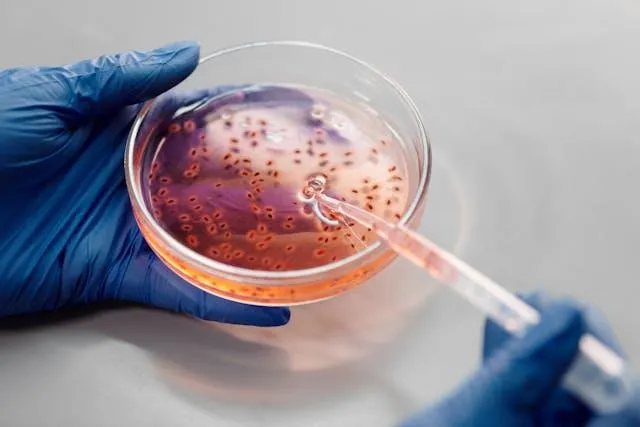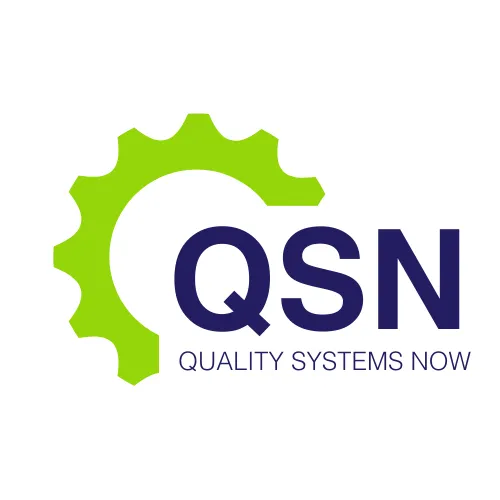NEWS

Workforce Capability Building in Biotechnology and Advanced Therapies
The Growing Importance of Biotechnology and Advanced Therapies
The biotechnology sector is undergoing rapid expansion, with innovations in cell and gene therapies, regenerative medicine, and advanced biologics driving new opportunities and challenges. These advanced therapies hold the potential to transform healthcare by offering treatments that are more targeted, personalised, and in some cases curative. However, the complexity of these products and the strict regulatory environment in which they are developed and manufactured mean that success depends on a highly skilled workforce.
In Australia and internationally, regulators such as the Therapeutic Goods Administration (TGA), the US Food and Drug Administration (FDA), and the European Medicines Agency (EMA) have emphasised the need for robust systems that ensure patient safety, product quality, and compliance with Good Manufacturing Practice (GMP). For companies in the biotechnology space, building workforce capability is therefore not just a strategic advantage, but a fundamental requirement for regulatory success and long-term sustainability.
Unique Workforce Challenges in Biotechnology
Unlike traditional pharmaceuticals, advanced therapies such as cell and gene therapies are often patient-specific or produced in very small batches. This creates significant manufacturing and operational challenges. Employees must be capable of working within highly controlled environments, following exacting protocols, and managing new and evolving technologies.
Some of the key workforce challenges in biotechnology and advanced therapies include:
Specialised technical knowledge: Staff require expertise in areas such as aseptic processing, genetic engineering, tissue culture, and advanced analytical methods.
Rapidly evolving technologies: Techniques and platforms in this space evolve quickly, requiring staff to continuously update their skills.
Regulatory complexity: Compliance with GMP and other regulatory frameworks is especially demanding for advanced therapies, where regulations may be adapted to reflect novel risks.
Interdisciplinary collaboration: Teams often include scientists, engineers, quality professionals, and manufacturing staff who must work together seamlessly to ensure both innovation and compliance.
These challenges highlight the importance of a training strategy that not only equips staff with technical skills but also builds a culture of quality, regulatory awareness, and adaptability.
The Role of Training in Building Capability
Training is the cornerstone of workforce development in biotechnology. A structured approach to education ensures employees understand not only what to do, but also why compliance and quality are critical in advanced therapies. This goes beyond technical instruction to include training in GMP principles, data integrity, risk management, and regulatory expectations.
For biotechnology organisations, the benefits of comprehensive training programs include:
Improved compliance outcomes: Well-trained staff are less likely to make errors that result in deviations, product failures, or regulatory findings.
Enhanced productivity: Employees who understand processes thoroughly are more efficient, reducing downtime and improving throughput.
Stronger quality culture: Training reinforces the shared responsibility for quality, encouraging staff to identify and resolve issues proactively.
Adaptability to change: Ongoing training ensures staff remain capable as new technologies and regulatory updates emerge.
QSN Academy’s Role in Workforce Development
At QSN Academy, part of Quality Systems Now, we recognise that training is not a one-size-fits-all exercise. Biotechnology and advanced therapy organisations require tailored programs that address their unique processes and compliance obligations. Our training programs are designed to build capability across multiple levels of the workforce, from new employees entering GMP environments to experienced staff needing updates on emerging regulations or technologies.
Our approach is grounded in three key principles:
Practical relevance – Training is designed and delivered by professionals with direct industry experience, ensuring that content reflects real-world challenges and solutions.
Regulatory alignment – Courses are developed with a focus on current TGA, FDA, and EMA expectations, giving organisations confidence that their teams are trained to meet international standards.
Continuous improvement – We encourage a mindset of lifelong learning, equipping staff not only with current knowledge but also the skills to adapt as the industry evolves.
Through classroom sessions, online learning, and tailored in-house programs, QSN Academy provides a flexible platform for organisations to invest in their most valuable asset — their people.
Building Skills for Advanced Manufacturing
Manufacturing advanced therapies requires unique competencies that extend beyond traditional GMP training. QSN Academy offers programs that help staff develop:
Aseptic and cleanroom behaviours: Essential for maintaining sterility in the production of biologics and cell therapies.
Understanding of novel production processes: Training in cutting-edge manufacturing techniques such as viral vector production, autologous therapies, and continuous bioprocessing.
Risk-based decision making: Skills in identifying, assessing, and mitigating risks that are critical in small-batch, high-value production.
Regulatory inspection readiness: Practical preparation for TGA and international regulatory inspections, including what inspectors look for and how to demonstrate compliance effectively.
By building these capabilities, QSN Academy supports biotechnology organisations in achieving both regulatory success and operational excellence.
The Long-Term Value of Workforce Development
Investing in training and workforce development delivers long-term benefits that extend beyond immediate compliance outcomes. Organisations with well-trained staff are better positioned to innovate, scale production, and respond to regulatory changes with agility. More importantly, a capable workforce contributes directly to patient safety and trust in the therapies being developed.
For biotechnology companies in Australia and across the globe, building workforce capability is not optional. It is the foundation on which the industry’s future depends. By partnering with training providers such as QSN Academy, organisations can ensure their teams are prepared to meet the challenges and opportunities of this fast-evolving sector.
Conclusion
The biotechnology and advanced therapies sector is one of the most dynamic and promising areas of modern healthcare. However, its success depends heavily on the people who design, manufacture, and regulate these complex products. Workforce capability building is therefore essential, not only for compliance but also for advancing innovation and patient outcomes.
QSN Academy is committed to supporting biotechnology organisations in this journey. By providing targeted, practical, and regulatory-aligned training, we help organisations build the skills and confidence needed to thrive in a competitive and highly regulated environment. The future of biotechnology depends on strong systems, innovative science, and above all, capable people — and QSN Academy is here to make that future possible.
